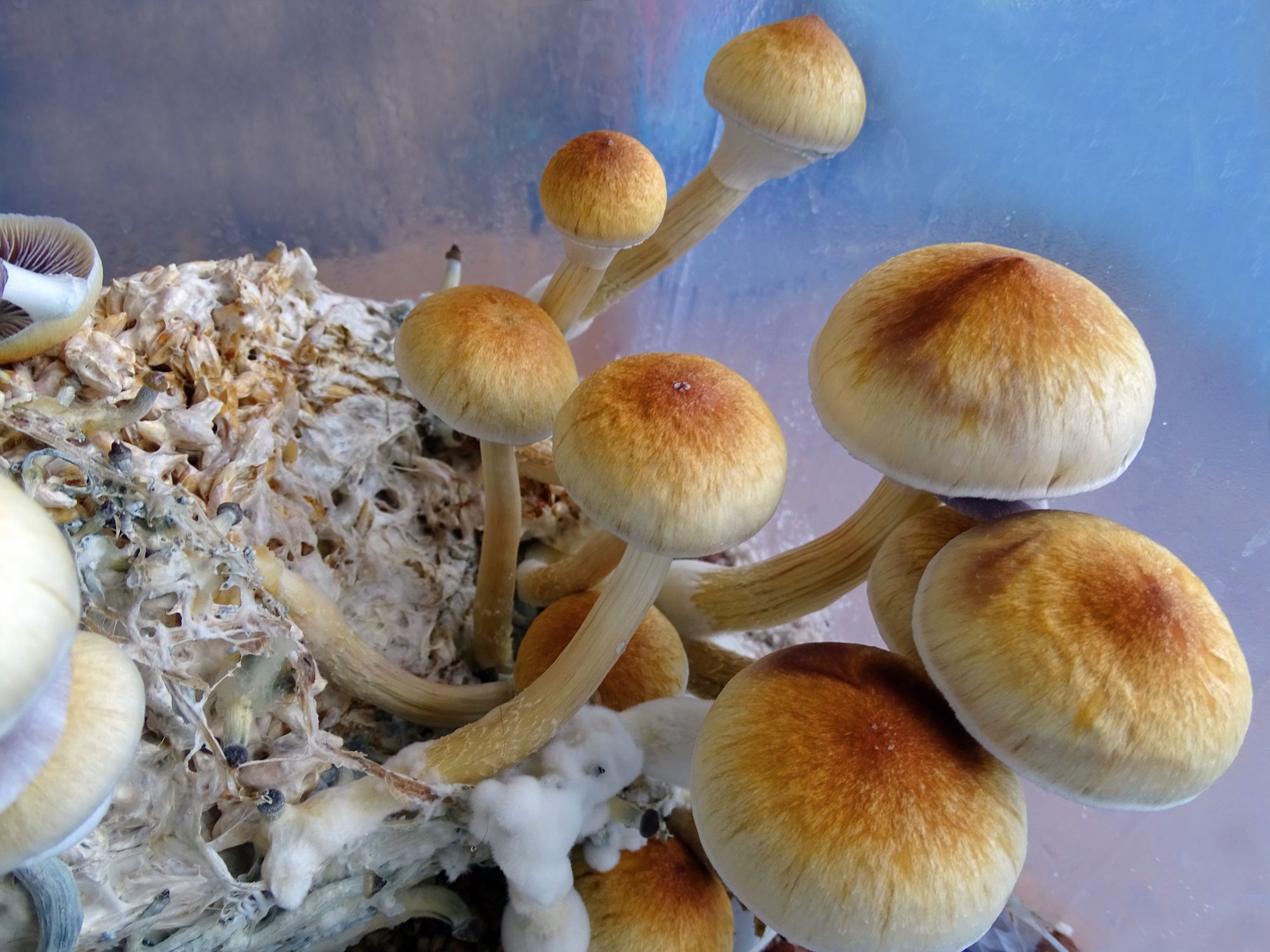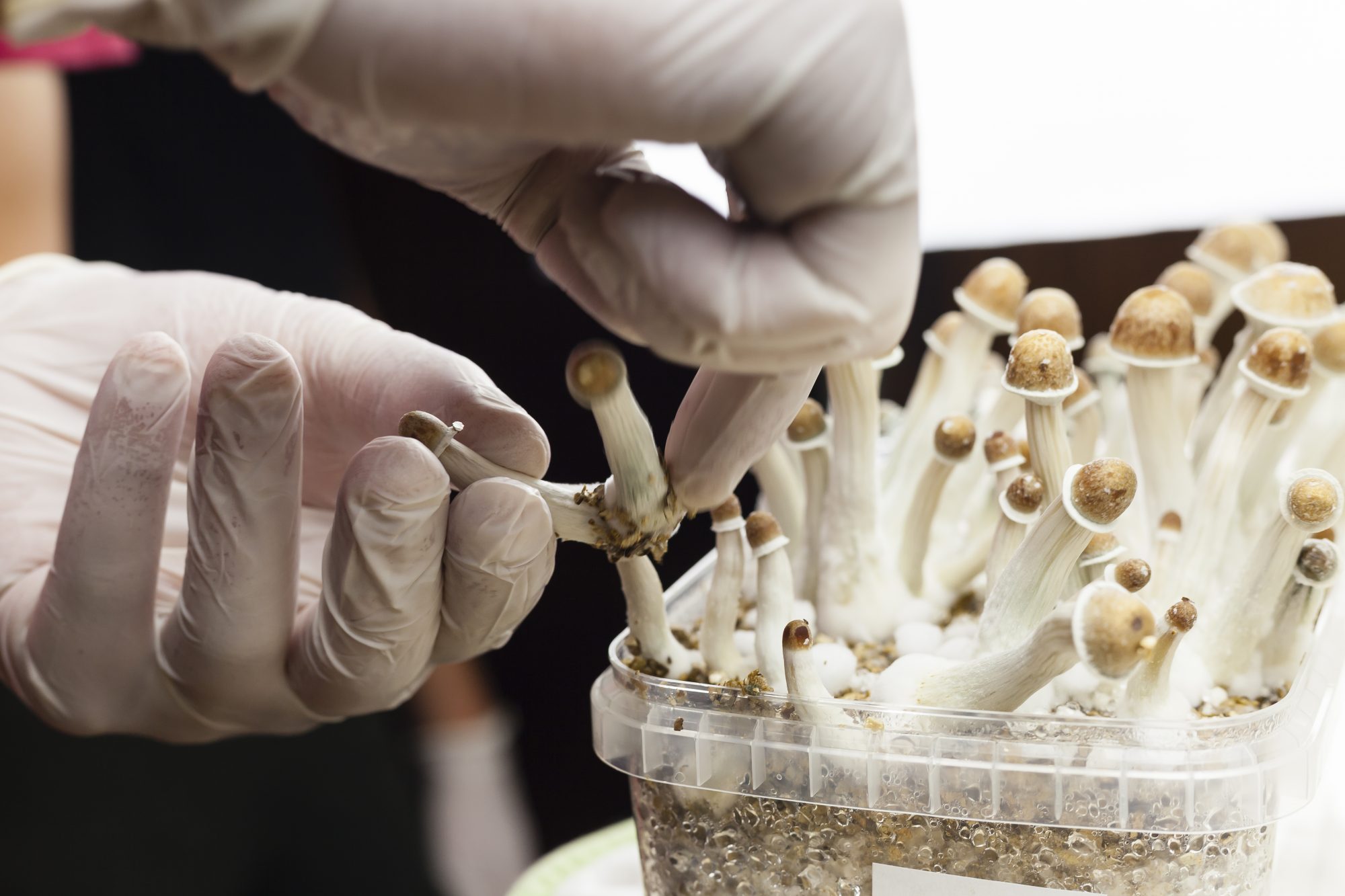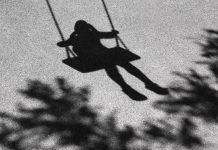Psilocybin rewires the brain in depressed people by freeing them up from long-held patterns of rumination and excessive self-focus
Psilocybin, a naturally occurring psychedelic prodrug compound produced by more than 200 species of fungi, rewires the brain in depressed people and has the potential to cure them of their depression, study finds.
How can psilocybin rewire the brain?
Psilocybin, the compound found in magic mushrooms, improves connections between different regions of the brain in depressed people.
This allows the individual to escape excessive rumination and self-focus, says a study by scientists at UC San Francisco and Imperial College London.

How did scientists test the drug?
60 people participated in two psilocybin trials and had their fMRI brain scans analysed by scientists.
The first trial
In the first psilocybin trial, all the participants were considered to have treatment-resistant depression and were aware that they were being given psilocybin.
The second trial
In comparison, the participants in the second trial were depressed but not as severely. They were also not told whether they had been given psilocybin or a placebo that turned out to be escitalopram, an SSRI antidepressant. In addition to the substances, all the participants received the same type of psychotherapy.
Scans were taken before and after treatment. The results showed that the psilocybin treatment reduced connections within brain areas that are tightly connected in depression.
This included:
- The default mode
- Salience
- Executive networks
- Increased connections to other regions of the brain that had not been well integrated
Moreover, study volunteers were also less emotionally avoidant and found that their cognitive functioning improved drastically.
According to this research, scientists found that psilocybin rewires the brain for up to three weeks after the second psilocybin dose.
In the individuals who received escitalopram, there were no such changes. This strongly suggests that psilocybin acts differently on the brain.
Psilocybin and other serotonergic psychedelics like ayahuasca affect 5-HT2A receptors, which are plentiful in brain networks that become overactive in depression.
One hypothesis is that the drugs briefly disrupt these connections, giving them a chance to reform in new ways in the ensuing days and weeks.
Anti-depressant treatment last weeks
“In previous studies we had seen a similar effect in the brain when people were scanned whilst on a psychedelic, but here we’re seeing it weeks after treatment for depression, which suggests a carry-over of the acute drug action,” commented Robin Carhart-Harris, PhD, who directs the Neuroscape Psychedelics Division at UCSF and is the senior author of the study, which appears in Nature Medicine.
‘We don’t yet know how long the changes in brain activity seen with psilocybin therapy last’
“We don’t yet know how long the changes in brain activity seen with psilocybin therapy last, and we need to do more research to understand this,” said Carhart-Harris, who is the Ralph Metzner Distinguished Professor of Neurology, Psychiatry, and Behavioral Sciences and a member of the UCSF Weill Institute for Neurosciences.
“We do know that some people relapse, and it may be that after a while their brains revert to the rigid patterns of activity we see in depression.”
The authors add that whilst they feel very encouraged by these findings, they warn that patients with depression should not attempt to self-medicate with psilocybin.
The trials took place under controlled, clinical conditions, using a regulated dose formulated in a laboratory, and involved extensive psychological support before, during, and after dosing.
Psilocybin as an alternative treatment for depression
Psilocybin rewires the brain in such a way that it may help alleviate depression and other debilitating psychiatric conditions. And it is not the only type of psychedelic effective against mental health issues and psychiatric conditions that are marked by fixed patterns of thinking.
“For the first time we find that psilocybin works differently from conventional antidepressants – making the brain more flexible and fluid, and less entrenched in the negative thinking patterns associated with depression,” concluded David Nutt, DM, head of the Imperial Centre for Psychedelic Research.
“This supports our initial predictions and confirms psilocybin could be a real alternative approach to depression treatments.”












I was suffering from post traumatic stress I had bad child hood abuse ! Army ! Jail ! Nothing was working I was on a self destructive way of life ! The govement would save billions if they looked into drug alcohol physical mental abuse depression ! For myself I was at an end I went to someone psychiatrist! Well-being cgl n a time bomb ! I risked going to a hypnotist which I thought was a joke but if you open up it can help then I got a help by my hypnotist to take a mushroom which rewired your brain ! I studied all ! N yes it’s really worked not totally but more than enything combined 7 countries have tested it in mri etc look for yourself I would willing be a Guinea pig ! It’s just a fact the govement pay the pharmaceutical company’s n brushed aside ! Do your homework peaple n believe !